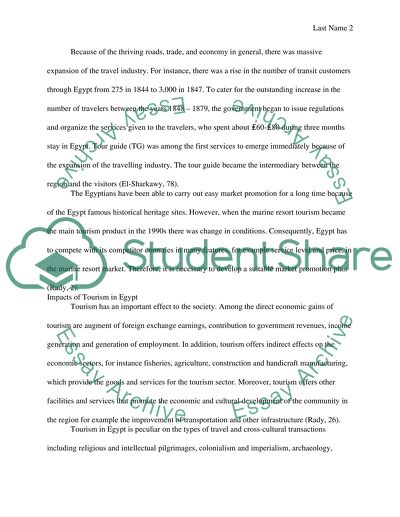Cite this document
(“The Negative Impacts of Tourism on Egyptian Culture Research Paper”, n.d.)
Retrieved from https://studentshare.org/tourism/1427743-the-negative-impacts-of-tourism-on-egyptian-culture
Retrieved from https://studentshare.org/tourism/1427743-the-negative-impacts-of-tourism-on-egyptian-culture
(The Negative Impacts of Tourism on Egyptian Culture Research Paper)
https://studentshare.org/tourism/1427743-the-negative-impacts-of-tourism-on-egyptian-culture.
https://studentshare.org/tourism/1427743-the-negative-impacts-of-tourism-on-egyptian-culture.
“The Negative Impacts of Tourism on Egyptian Culture Research Paper”, n.d. https://studentshare.org/tourism/1427743-the-negative-impacts-of-tourism-on-egyptian-culture.


